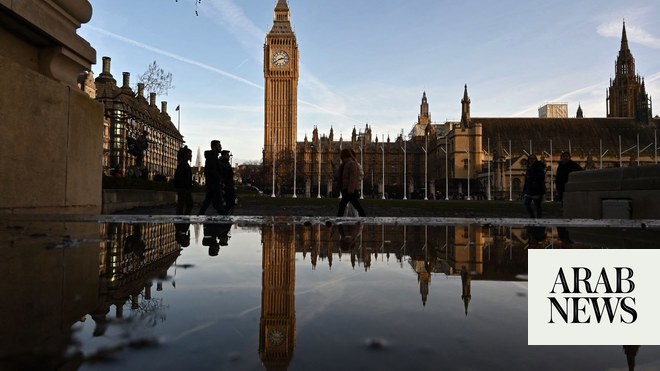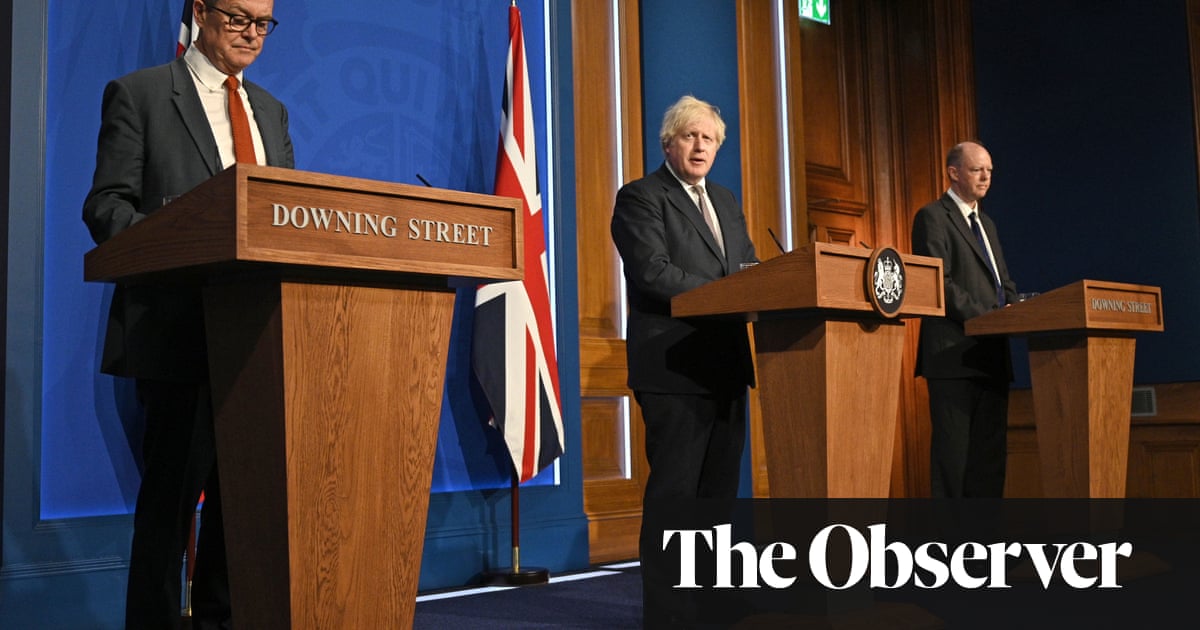
Justice Secretary Robert Buckland yesterday announced that emergency legislation to prevent the early release of terrorists will be passed by Feb. 27
On Sunday, 20-year-old Sudesh Amman was shot dead by police officers, who were carrying out a 24/7 surveillance operation, after he stabbed two people
LONDON: The UK government has reacted to another terror attack by an extremist recently released from prison by announcing wide-ranging changes to counterterror laws.
On Sunday, 20-year-old Sudesh Amman was shot dead by plainclothes police officers, who were carrying out a 24/7 surveillance operation, after he stabbed two people in south London.
Justice Secretary Robert Buckland yesterday announced that emergency legislation to prevent the early release of terrorists will be passed by Feb. 27.
The minister said that the laws will be introduced to parliament by Tuesday next week.
Buckland’s proposals come after it was announced that neither the police nor the Parole Board could prevent the January release of Amman, who was convicted in November 2018 of a litany of terror charges, and had only served half his sentence.
In November, 28-year-old Usman Khan stabbed five people, two fatally, at a prisoner rehabilitation event in central London.
In December 2018, Khan was automatically released from prison on license, where he was serving a 16-year sentence for terrorism offenses, and was wearing an electronic tag.
With two similar events of terrorism carried out by recently released attackers in short succession, pressure has mounted on the government to act swiftly to prevent other extremists from enjoying the same freedom.
Amman was released on Jan. 23. The release was automatic as he had reached the halfway point of his sentence, as is common in British law.
Arab News understands that there was no system in place for carrying out a risk assessment on whether it was safe to free him.
Despite this, police and prison officers assessed him as posing the highest possible risk to the public, and he was released with heavy restrictions: A curfew, an electronic tag, limited movement and reduced Internet access.
Britain’s domestic intelligence service MI5 and London’s Metropolitan Police committed vast resources to keep Amman under 24/7 surveillance, with sources within the police telling Arab News that a typical operation of this kind includes up to 20 officers.
Sources told The Guardian newspaper that Amman had been deemed unwilling to engage with prison rehabilitation and counter-extremism programs within prison. They said he was “as much a problem when he came out of prison as when he went in.”
A former inmate who spent time with Amman in Belmarsh prison told The Times that he wanted to murder an MP and intended to “do something real.”
The former inmate from the high-security prison added that Amman was a volatile prisoner who once practiced a Daesh-style execution with his cellmate.
Ministers now hope that emergency legislation to prevent the release of prisoners like Amman will be passed before the parliamentary recess on Feb. 13.
Dozens more convicted terrorists are currently set to be released later this year under the current laws.
Buckland on Monday said: “We cannot have the situation … where an offender — a known risk to innocent members of the public — is released early by automatic process of law without any oversight by the Parole Board.”
Amman was arrested in 2018 on suspicion of planning an attack, and had incited his girlfriend to behead her parents, but he was only prosecuted for possession of Daesh propaganda.
Independent terrorism researcher Kyle Orton told Arab News: “There are questions to be asked about the Crown Prosecution Service’s decisions to go for the less serious crime; the reasons aren’t clear. Regardless, the original sentence for Amman was clearly far too short, and the fact that he only served half of this sentence makes matters even worse.”
Orton added: “The government’s plans to have a much longer mandatory sentence for terrorism offenses is a good start. Longer sentences do at least keep these people away from the public longer, and the passage of time itself can be helpful; the fire in a 20-year-old can fade in a 35-year-old.”
Critics of the government’s proposals have argued that there is no guarantee that an extremist on a longer prison sentence will be less likely to retain their views, especially considering the rates of radicalization within jails.
Orton said he is sympathetic to this view: “For many — perhaps most — of those imprisoned for seriously planning a terrorist attack, any length of sentence is simply a delay.”
He added: “The underlying problem remains that violent jihadists are unlikely to change their mind or be ‘deradicalized,’ and those who do come away from extremism do so in ways as individual as the ways they entered, so designing a functional ‘deradicalization’ policy is very unlikely.”












